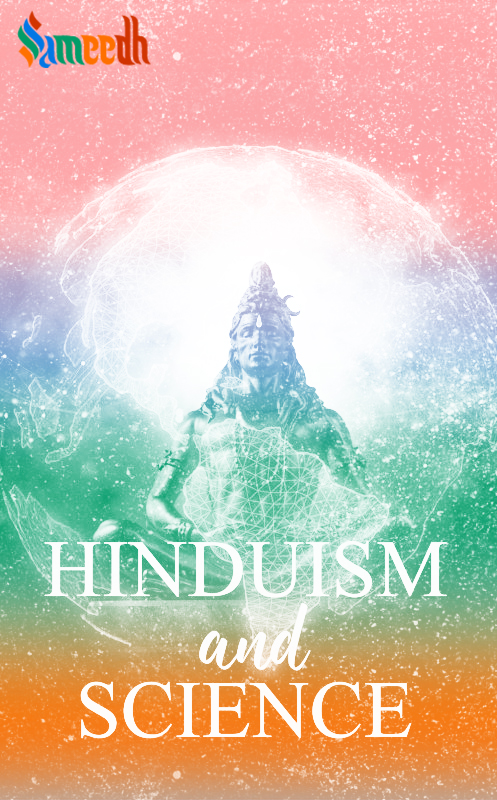Hinduism is often regarded as having certain philosophical and conceptual elements that are seen as compatible or parallel to scientific principles.

Hinduism is often regarded as having certain philosophical and conceptual elements that are seen as compatible or parallel to scientific principles. While it’s important to note that Hinduism is a diverse and ancient tradition with a wide range of beliefs, here are a few reasons why some people perceive a close relationship between Hinduism and science:
- Concept of Time and Cycles: Hinduism recognizes the cyclical nature of time, with the universe undergoing cycles of creation, preservation, and dissolution. This idea aligns with scientific concepts such as the Big Bang theory, the expansion and contraction of the universe, and the idea of cosmic cycles.
- Emphasis on Observation and Empirical Knowledge: Hinduism encourages the pursuit of knowledge through observation and experience. The Vedas, the ancient Hindu scriptures, contain descriptions of natural phenomena and observations of celestial bodies. This emphasis on empirical knowledge resonates with the scientific method, which relies on observation, experimentation, and evidence-based reasoning.
- Concept of Interconnectedness: Hinduism highlights the interconnectedness of all beings and elements in the universe. This perspective aligns with the ecological and systems thinking that is integral to many scientific disciplines. The recognition of interconnectedness is also reflected in concepts such as the conservation of energy and the interconnectedness of ecosystems.
- Spiritual and Scientific Exploration: Hinduism has a long history of philosophical and intellectual inquiry. It encourages individuals to explore and question the nature of reality, consciousness, and the self. This open-mindedness and intellectual curiosity have fostered scientific advancements in fields such as mathematics, astronomy, and medicine throughout history.
- Symbolic and Allegorical Interpretations: Hindu scriptures often employ symbolism, metaphors, and allegories to convey complex ideas. This figurative approach allows for multiple interpretations and accommodates scientific discoveries and advancements. It provides a flexible framework that can adapt to new knowledge and scientific understanding.
It’s essential to recognize that Hinduism is a diverse and complex tradition, and not all aspects of it can be directly equated with scientific principles. Additionally, interpretations and views on the relationship between Hinduism and science may vary among different individuals and communities. While there may be areas of convergence, it’s also important to acknowledge that Hinduism and science operate in distinct realms, addressing different aspects of human experience and inquiry.